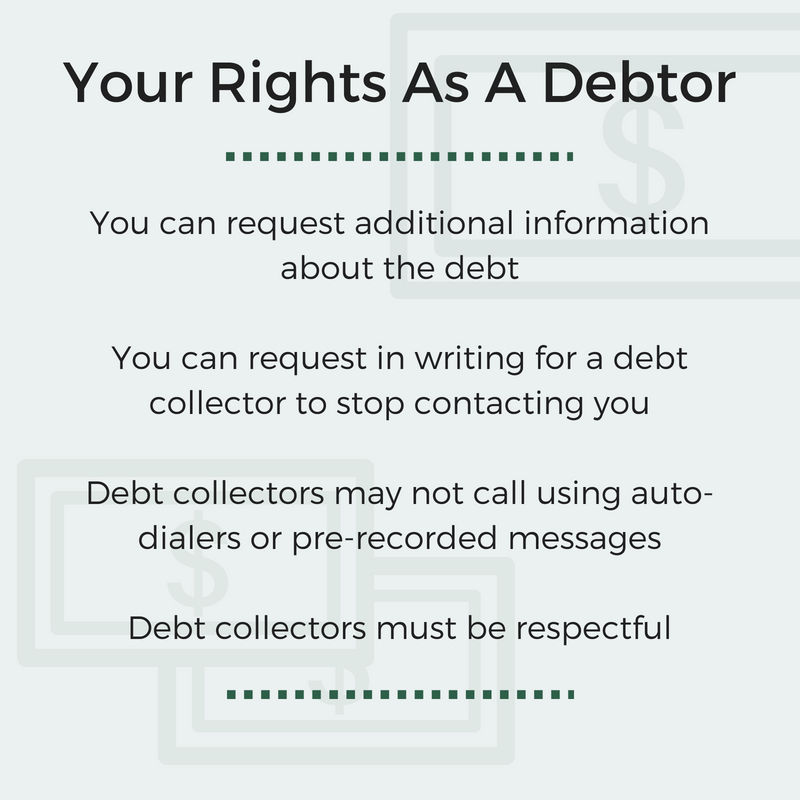
Debt collectors, or companies that collect debts owed to other creditors, are prohibited from employing certain tactics, thanks to a law known as the Fair Debt Collection Practices Act (FDCPA). To avoid being bullied by collectors, it’s important to understand your rights with regard to delinquent debt.
Time of Day
For one, there are certain times that a debt collector cannot call you. A debt collector may not contact you in the late evening (after 9pm) or in the early morning (before 8 am). Additionally, they may not contact you at work, if it has been made clear that they are not allowed to do so. Calling you at inconvenient times is specifically prohibited by federal law.
Harassment
Secondly, a debt collector is not allowed to harass you in any shape or form. They are not permitted to cuss at you, to threaten you or to coerce you in an attempt to get you to pay a debt. They are also not allowed to tell other consumers about your debt in an attempt to shame you. Debt collectors might call you repeatedly after you’ve already made it clear that you don’t want to speak on the phone. This would also count as a form of harassment.
Intentional Misrepresentation
In some cases, a debt collector might try to pose as a government official in order to assert authority and leverage to collect a debt. This is strictly forbidden under section 807 of the FDCPA. They might tell you they are associated with the United States in an official capacity, or they might paint themselves as a lawyer. These misrepresentations are proscribed by federal law. In short, any form of misrepresentation is not legal and may be sufficient justification for you to file a claim against the debt collector.
Attorney
It’s also important to know that if you have an attorney representing you in the matter of your debt and you have communicated this to the collection agency, the debt collector cannot contact you directly. He must, instead, direct all communications to your lawyer. In fact, if you state in writing that you do not want to be contacted any longer, a debt collector cannot call you, except to tell you that he is ceasing communication. A debt collector may also contact you to notify you that he is suing you or reporting your debt to a credit reporting agency.
Accessing Information
There are a few facts that a collection agency must tell you when attempting to collect a debt. The collection agency must tell you the name of the creditor; they must divulge the full amount of debt in question; they must inform you that you are allowed to formally dispute all or part of the debt; and they must tell you that you are allowed to ask for the contact information of the original creditor – that includes their name and address. Lastly, if you aren’t sure that the debt is real, the agency must prove that you do in fact owe the money.
Finally, if the debt turns out to be real and you eventually send a post-dated check, they are not allowed to cash it prior to the specified date.
Credit Report
As noted on ConsumerLawChicago.com, the Fair Credit Reporting Act (FCRA) is also a useful resource for protecting yourself against devious tactics employed by credit reporting agencies. Under the FCRA, you are allowed to ask a credit reporting agency to correct any misprints in the report. Additionally, the report should be up-to-date, meaning entries that are over seven-years old should be stricken. It’s also important to note that you are not required to disclose your credit report to your employer. Finally, if you are in the midst of a dispute that is not resolved, you may write your own report to be added to the formal credit report.
Your Rights As A Debtor
(Markoff Leinberger LLC)
If you find yourself being hassled by a credit agency or if a credit reporting company has unfairly changed your credit rating, you may want to call an attorney with experience in consumer rights.

